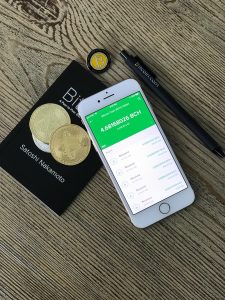Forex, or foreign exchange, trading is a popular investment option for many individuals and businesses. It involves buying and selling currencies in order to make a profit from the fluctuations in exchange rates. However, like any investment, there are tax implications that need to be considered. In this article, we’ll discuss how forex gains get charged by the IRS.
Firstly, it’s important to understand that forex gains are considered capital gains by the IRS. This means that they are subject to the same tax rules as other investments, such as stocks and bonds. Capital gains are divided into two categories: short-term and long-term. Short-term capital gains are gains made on investments held for less than one year, while long-term gains are made on investments held for more than one year. The tax rate for short-term gains is usually higher than for long-term gains.
When it comes to forex trading, the IRS considers it to be a form of investment income. This means that forex gains are subject to income tax. The amount of tax you need to pay depends on your income tax bracket. For example, if you’re in the 22% tax bracket, you’ll need to pay 22% tax on your forex gains.
It’s important to note that forex losses can also be used to offset gains. This means that if you make a loss on one trade, you can use it to reduce the amount of tax you need to pay on a profitable trade. However, there are limits on how much you can offset. For example, if you make a loss of $10,000, you can only use $3,000 of that loss to offset gains. The remaining $7,000 can be carried forward to future tax years.
Another important factor to consider is the type of forex account you have. There are two types of forex accounts: cash and margin. Cash accounts require you to have the full amount of money in your account to make a trade, while margin accounts allow you to borrow money from your broker to make trades. The IRS treats these accounts differently when it comes to taxes.
If you have a cash forex account, any gains or losses made on trades are realized immediately. This means that you’ll need to pay tax on any gains made during the tax year, regardless of whether you’ve withdrawn the money from your account or not. If you have a margin forex account, any gains or losses are not realized until you withdraw the money from the account. This means that you can delay paying tax on gains until you actually withdraw the money.
It’s also worth noting that forex trading is subject to the IRS’s wash sale rule. This rule prevents traders from selling a security at a loss and then buying it back within 30 days in order to claim a tax deduction. The same rule applies to forex trading. If you sell a currency at a loss and then buy it back within 30 days, you won’t be able to claim the loss as a deduction.
In conclusion, forex gains are subject to income tax and are considered capital gains by the IRS. The amount of tax you need to pay depends on your income tax bracket, and losses can be used to offset gains. The type of forex account you have also affects how gains and losses are realized for tax purposes. It’s important to keep accurate records of your forex trades and consult with a tax professional to ensure you’re meeting your tax obligations.





